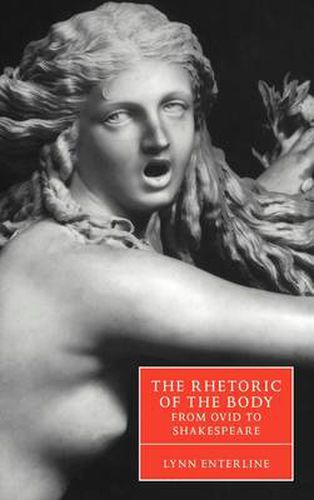Readings Newsletter
Become a Readings Member to make your shopping experience even easier.
Sign in or sign up for free!
You’re not far away from qualifying for FREE standard shipping within Australia
You’ve qualified for FREE standard shipping within Australia
The cart is loading…






This persuasive book analyses the complex, often violent connections between body and voice in Ovid’s Metamorphoses and narrative, lyric and dramatic works by Petrarch, Marston and Shakespeare. Lynn Enterline describes the foundational yet often disruptive force that Ovidian rhetoric exerts on early modern poetry, particularly on representations of the self, the body and erotic life. Paying close attention to the trope of the female voice in the Metamorphoses, as well as early modern attempts at transgendered ventriloquism that are indebted to Ovid’s work, she argues that Ovid’s rhetoric of the body profoundly challenges Renaissance representations of authorship as well as conceptions about the difference between male and female experience. This vividly original book makes a vital contribution to the study of Ovid’s presence in Renaissance literature.
$9.00 standard shipping within Australia
FREE standard shipping within Australia for orders over $100.00
Express & International shipping calculated at checkout
This persuasive book analyses the complex, often violent connections between body and voice in Ovid’s Metamorphoses and narrative, lyric and dramatic works by Petrarch, Marston and Shakespeare. Lynn Enterline describes the foundational yet often disruptive force that Ovidian rhetoric exerts on early modern poetry, particularly on representations of the self, the body and erotic life. Paying close attention to the trope of the female voice in the Metamorphoses, as well as early modern attempts at transgendered ventriloquism that are indebted to Ovid’s work, she argues that Ovid’s rhetoric of the body profoundly challenges Renaissance representations of authorship as well as conceptions about the difference between male and female experience. This vividly original book makes a vital contribution to the study of Ovid’s presence in Renaissance literature.